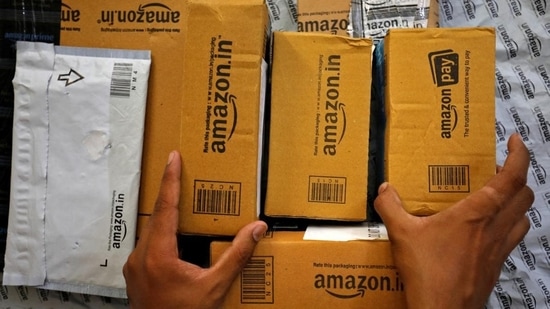Amazon, Tata say Centre's stricter e-commerce rules will hit business: Report
The government introduced Consumer Protection (e-commerce) Rules, 2020, amid complaints by traders and small businesses that the two dominant e-commerce platforms Amazon and Flipkart are flouting local laws.
American e-retailer giant Amazon Inc and India's Tata Group have told the Centre that plans for tougher rules for online retailers would have a major impact on their business models, news agency Reuters reported. The warning came after representatives of the companies met government officials on Saturday, Reuters reported.

The meeting was organised by the consumer affairs ministry and the government's investment promotion arm, Invest India. Many executives expressed concerns and confusion over the proposed rules and asked that the July 6 deadline for submitting comments be extended, Reuters reported quoting officials.
The Consumer Protection (e-commerce) Rules, 2020, announced on June 21, will be implemented after factoring in industry views. The rules are expected to tighten regulations on e-commerce players, which include barring affiliated entities from selling on the platforms and restricting flash sales.
The e-commerce giants are already barred from controlling firms that sell on their platform, entering into exclusive arrangements with companies for online sales of products such as smartphones, and discounting goods.
The draft proposal says that the rules will apply to all e-commerce entities that are not established in India. According to the government, the new rules are aimed at strengthening protection for consumers.
But these new rules could not only force global players like Amazon and Walmart-owned Flipkart to review their business structures, they may increase costs for domestic rivals including Reliance Industries' JioMart, BigBasket and Snapdeal.
Amazon argued that Covid-19 had already hit small businesses and the proposed rules will have a huge impact on its sellers, arguing that some clauses were already covered by existing law, according to Reuters who quoted officials aware of the developments at Saturday's meeting.
Tata, meanwhile, argued that the rules would stop Starbucks - which has a joint-venture with Tata in India - from offering its products on Tata's marketplace website.
The rules were announced amid growing complaints from India's brick-and-mortar retailers that Amazon and Flipkart bypass foreign investment law using complex business structures. The companies have denied any wrongdoing.






